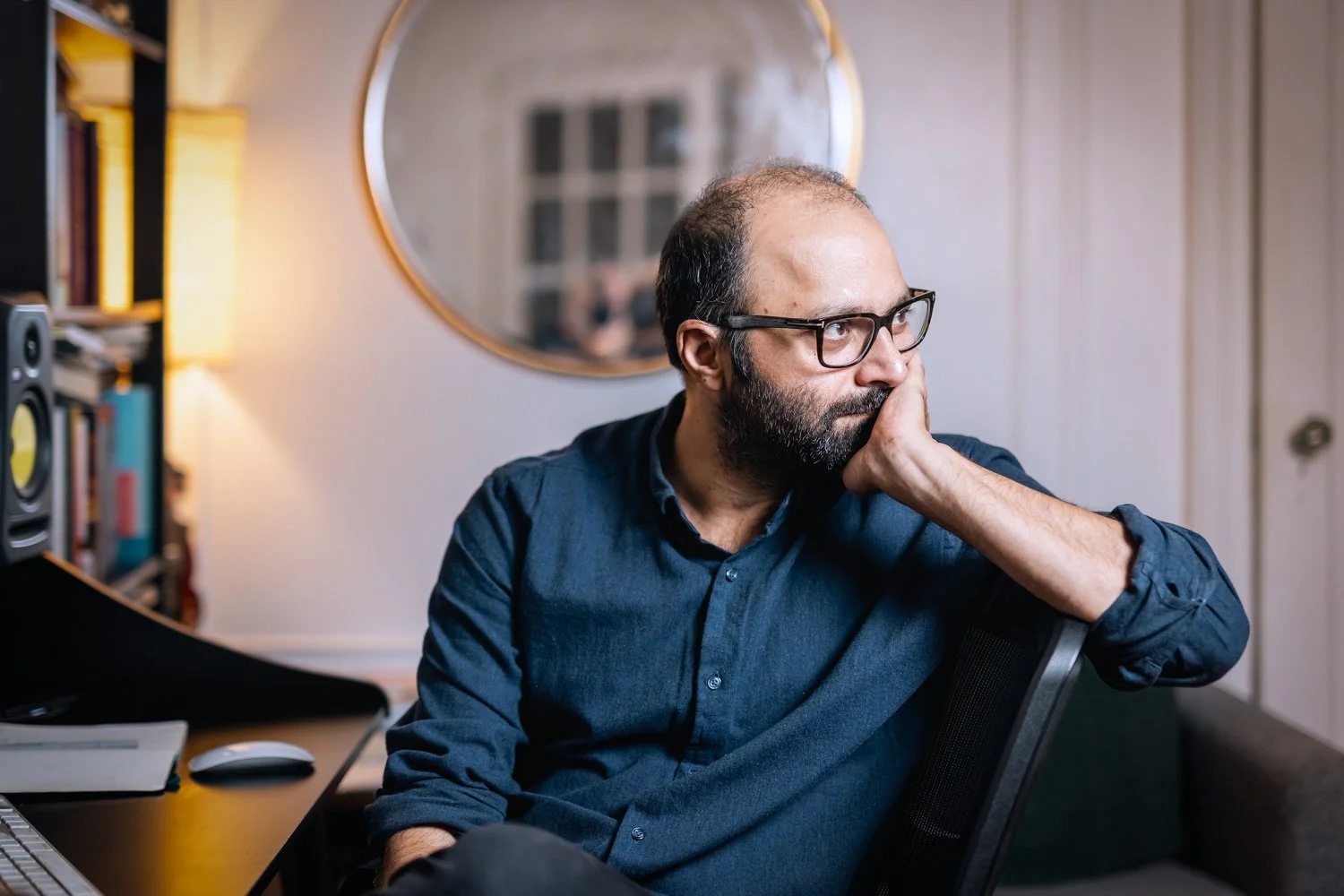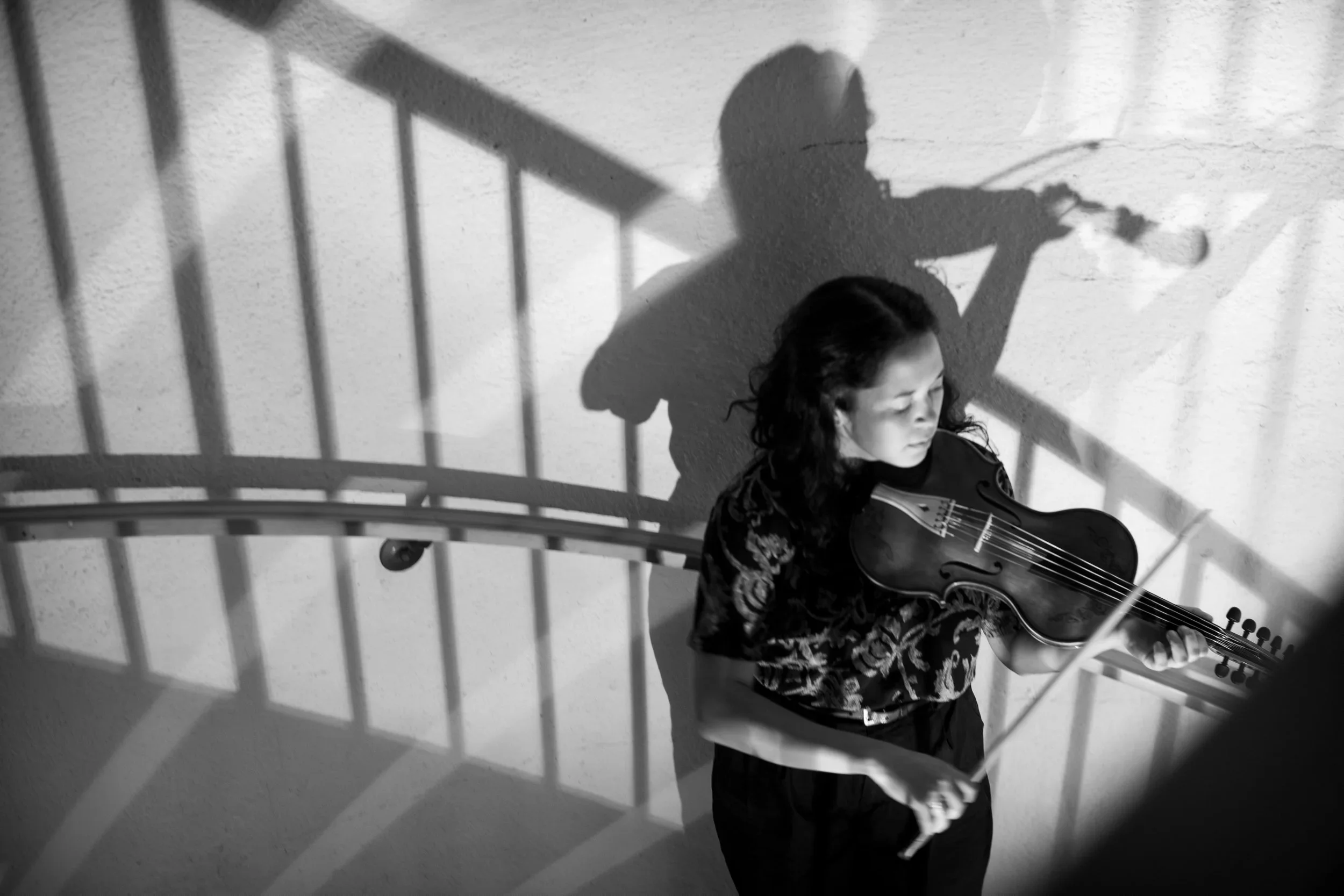TAK ensemble & Ashkan Behzadi:
LOVE, CRYSTAL AND STONE
& Zosha Warpeha
TICKET SALES ARE NOW CLOSED, FEEL FREE TO PURCHASE DOOR TICKETS
Monday, December 1st
520 Clinton Ave., Brooklyn
7:30PM
Ashkan Behzadi’s Love, Crystal and Stone stretches musical lyricism to its limit, imagining an impossibly radical, revolutionary folk music that pushes the individual and collective virtuosity of TAK ensemble to new heights.
This concert length work is a sensual, intricately interwoven, and deeply philosophical setting of the poetry of Federico García Lorca. The book features Ahmad Shamlou’s farsi translations and reimaginings of Lorca’s poetry and the ecstatically macabre paintings of Mehrdad Jafari bringing together bold visual gestures and elemental icons evoking birds, rivers, fear, ecstasy, and exaltation.
V: ¡Ay! El grito deja en el viento
VI: Casida de las palomas oscuras
VII: La Granada
IV: Arqueros
I: Deseo
II: Romance de la luna luna
III: La balada del agua del marV: ¡Ay! El grito deja en el viento
Ashkan Behzadi, a recipient of 2025 Ernst von Siemens Composer Prize and a 2021–2022 Guggenheim Fellow in Music Composition, is an Iranian-Canadian composer based in New York. He earned his DMA in composition at Columbia University, where he studied with Fred Lerdahl, George Lewis, and Georg Friedrich Haas. Prior to this, he graduated from McGill University with a bachelor’s degree in composition and music theory, studying composition with Chris Paul Harman and Brian Cherney. Ashkan also holds a bachelor’s degree in architecture from Tehran University, where, at the same time, he took composition and music theory lessons with Alireza Mashayekhi.
Ashkan’s music has been commissioned and performed by various international performers and ensembles, including Ensemble Recherche, TAK Ensemble, Oerknal Ensemble, Ensemble Mosaik, Yarn/Wire, JACK Quartet, Grossman Ensemble, Divertimento Ensemble, Ensemble Alternance, Ensemble UnitedBerlin, Exaudi, Ekmeles, Wet Ink, Talea Ensemble, and le Nouvel Ensemble Moderne (NEM).
His work has also been recognized with awards, artist residencies, and participation in festivals such as the Koussevitzky Foundation, Fromm Foundation, New York State Council on the Arts, the Graham Sommer Second Prize, the Prix de Composition at Fontainebleau, the MacDowell Fellowship, the Civitella Ranieri Fellowship, the Divertimento Ensemble Composers Meeting, the Dialoge Festival at Stiftung Mozarteum Salzburg, the Manifeste Festival at IRCAM, and the CIRMMT New Music Series.
For the 2019–2020 academic year, Ashkan Behzadi joined the Department of Music at the University of Chicago as a Postdoctoral Researcher in the Center for Contemporary Composition. Since september 2023, he teaches at the Manhattan School of Music as a faculty member in Music Composition.
The issue of genre identity or genre-blurring, along with the dialectical relationship between modernist lyric poetry and contemporary music, has formed the core of Ashkan’s aesthetic concerns in recent years. Structurally, his music demonstrates a great attention to detail, conveying a miniaturist and gentle lyrical landscape. By employing techniques of allusion and pastiche as the foundation of his craft, his music ultimately seeks to invoke the collective memory of folklore music.
Zosha Warpeha is a composer-performer working in a meditative space at the intersection of contemporary improvisation and folk traditions. Using bowed stringed instruments alongside her own voice, her long-form compositions explore transformations of time and tonality. She performs primarily on Hardanger d’amore, a sympathetic-stringed instrument closely related to the Norwegian Hardanger fiddle. Her current work is informed by the cyclical forms, rhythmic elasticity, and the physical momentum of Nordic folk music.
Warpeha’s solo debut silver dawn (Relative Pitch Records) has been lauded as a “breathtaking dialogue between Warpeha and her instrument” (I Care if You Listen), her compositional process “subverting tradition not as a political act, but as a point of departure” (Peter Margasak).
Notable performances have taken place at the Emanuel Vigeland Museum, Newport Jazz Festival, Vesterheim Museum, The Stone, Detroit Institute of Arts, Greenwood Cemetery Catacombs, and Duluth-stämman Nordic Music Festival. Warpeha has collaborated with artists including Eyvind Kang, Shahzad Ismaily, Elori Saxl, Kaïa Kater, anna rg, Anne Hytta, and Unni Løvlid. Ongoing collaborations include duo projects with Bolivian composer Mariel Terán, percussionist Carlo Costa, instrument-builder Webb Crawford, ambient winds player Craig Schenker, and bassist Tristan Kasten-Krause.
Warpeha is currently based in Brooklyn, NY and is a 2025 Artist-in-Residence at ISSUE Project Room. Her work has also been supported by the US-Norway Fulbright Foundation, Jerome Foundation, Minnesota State Arts Board, and the Minnesota Arts and Cultural Heritage Fund. She holds bachelor’s degrees from the New School of Jazz & Contemporary Music and Eugene Lang College in New York City and a master’s degree in Nordic folk music performance from the Norwegian Academy of Music in Oslo. She performs with instruments and bows built by Salve Håkedal, Paul Wilson, Timothy Jansma, Niels Røine, and Andreas Grütter.

